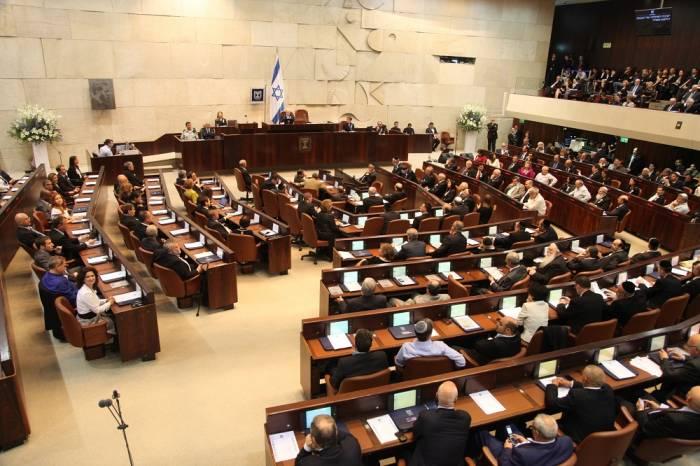Terrorist attacks and political crisis shake Israel Scene-setter by Mikhail Magid
On April 8, three Israelis were killed in a deadly terrorist attack in Tel Aviv. Two days later, the funeral of the people shot dead in a Tel Aviv pub was held. The death toll in four terrorist attacks in Israeli urban centers has reached 14 people. A wave of attacks rose on March 22, and two of them - in the Israeli cities of Beersheba and Hadera - were committed by Israelis of Arab origin associated with radical Islamists.
On April 10, without delay, the Israeli government approved a law "On the deprivation of social security benefits for families of Arab citizens or residents involved in terrorist activities." This inevitably caused protests from those Israeli politicians who oppose the practice of collective punishment, based on the idea that the son does not bear the blame for the sins of the father, and from the fact that such measures contradict fundamental human rights.
The latest developments have taken place amid a political crisis that has already torn apart the fragile right-left coalition cabinet governing Israel. The crisis was caused by the departure of Knesset deputy Idit Silman from the coalition on April 6. Her decision deprived the ruling coalition of a parliamentary majority. Silman is a member of the tough-line nationalist and at the same time religious right-wing Yamina party, with which the current Israeli Prime Minister Naftali Bennett is also associated.
According to Israeli media, the official reason for the step depriving the ruling coalition of a majority was the conflict of Silman with the left-wing secular factions of the government, primarily with the Minister of Health Nitzan Horowitz (representing the left-liberal Meretz party). The controversy was caused by the question of the possibility of bringing leaven to hospitals during the Passover holiday. Judaism, as you know, prohibits the use of leaven during Passover. Behind this, at first glance, very strange discussion, there are serious disagreements related to the role of religion in the governance of the State of Israel. The deputies of the Yamina party are afraid that if they ignore the issue, they may lose their own religiously conservative electorate.

Silman's departure from the coalition leaves the Cabinet with 60 deputies - exactly half of Parliament. This would make it difficult for the government to pass laws and might make it impossible to approve the budget.
The proposal to withdraw benefits from the families of terrorists, approved by Prime Minister Bennett of Yamina, was aimed to appease an angry section of party supporters and to show nationalist and conservative Israelis that, contrary to what the opposition claims, the government does not drift toward secular values. The move can also be interpreted as an attempt by Bennett to prevent further defections of his coalition members to the opposition.
Meanwhile, the leader of the opposition (which consists of the nationalist right-wing Likud party and two religious parties that favor strengthening the role of religion in public life), former prime minister Binyamin (Bibi) Netanyahu, encouraged by Silman's move (evil tongues say that he was behind her démarche), has tried to mobilize additional rebels from Bennett's party. He may be negotiating with Interior Minister Ayelet Shaked (also a supporter of nationalist and conservative ideas).
"We are determined to correct and deal with everything that has been ignored for years and to change the situation so that engaging in terrorist activities against Israeli citizens makes no sense," Bennett said. - Paying government support to the families of terrorists is completely absurd, and it's time to correct this injustice."
The proposal won a large majority in the government, but was preceded by a heated debate with three ministers from the leftist-liberal Meretz party. They opposed it on the grounds that it violated the rights of innocent people.

For example, Esawi Frej, Minister of Regional Cooperation from Meretz, tweeted that depriving children of residents and citizens of Israel of social support is unacceptable. Gaby Lasky, a Meretz member of parliament, made a similar statement the day after the terrorist attack in Tel Aviv. The storm of indignation that followed (expressed by right-wing Bennett cabinet ministers) forced Lasky to issue a clarification and an apology.
Israeli political publicist Mazal Mualem noted that all "these events call into question the long-term survival of the so-called 'government of change,' i.e. the Bennett cabinet, undermined by ideological divisions exacerbated by internal security problems. Bennet stopped the political bleeding after Silman left, but she is unlikely to be the last to abandon ship."
Mualem points out that this "model of government was previously considered unfeasible when it was created in June 2021 - a combination of right-wing and left-wing parties, as well as an Arab party. Such a combination might have been justified in a relatively calm security environment. But when a wave of Arab-Palestinian terrorism strikes at the heart of the country, public sentiment invariably shifts to the right."
At the same time, left-liberal ministers and MPs cannot remain silent in such situations, because if they remain silent, they risk losing their own electorate. This also works to split the government.
So is the government about to fall, losing its parliamentary majority, and a situation of political uncertainty? Perhaps, but not necessarily.

The Bennett government can preserve power even in the tricky situation in which it finds itself today. This is due to the reasons for which it was created last summer.
The ruling coalition does indeed resemble a patchwork quilt. It includes rightist nationalists and conservatives who want a hard Arab course, centrists of uncertain views, the human rights activists and leftist liberals of Meretz, concerned about human rights violations, and even the United Arab List (Ra'am)! But how did they all come together in the first place?
This was preceded by a long period of political uncertainty - within two years, Israel had held four general elections. All that time there was no majority government because none of the parties or politicians could muster a parliamentary majority. This situation undermined the stability of the political system and led to a decline in the ratings of the Israeli economy, as measured by international agencies. Taken together, this encouraged politicians who were so diverse and the large companies that lobbied them to form a governing coalition, something that had previously seemed quite impossible.
The second reason is related to the first. Israeli society is totally dominated by right-wing parties and sentiments (the right in this country refers to toughliners against Arabs and supporters of religious political movements). The rightists hold more than 70 seats in the 120-seat parliament. But there is a deep split between them. From the point of view of the massive right, cooperation with Bibi Netanyahu, the charismatic rightist politician who has led the country for 12 years, is almost impossible. During his years in power, he has given his allies a lot of offense, always sidelining them. To make matters worse, Bibi is under trial: he has been accused of corruption. The bitter rejection of the acknowledged leader of the right, Netanyahu, made some right-wing politicians form a new coalition with their direct ideological opponents, the Ra'am and Meretz. In fact, the banner of this coalition is the "anyone but Bibi" principle. And as long as Netanyahu remains an influential politician and leader of the opposition, theoretically capable of winning the elections, they will prefer to hang on to the current coalition government.
So it is too early to bury the Israeli ruling coalition. Pre-term elections are too dangerous for its members.








